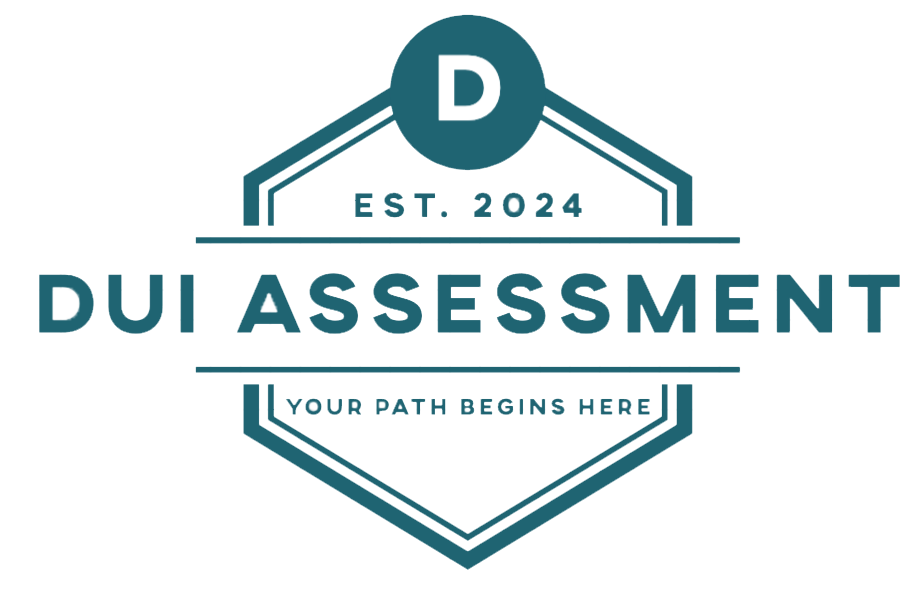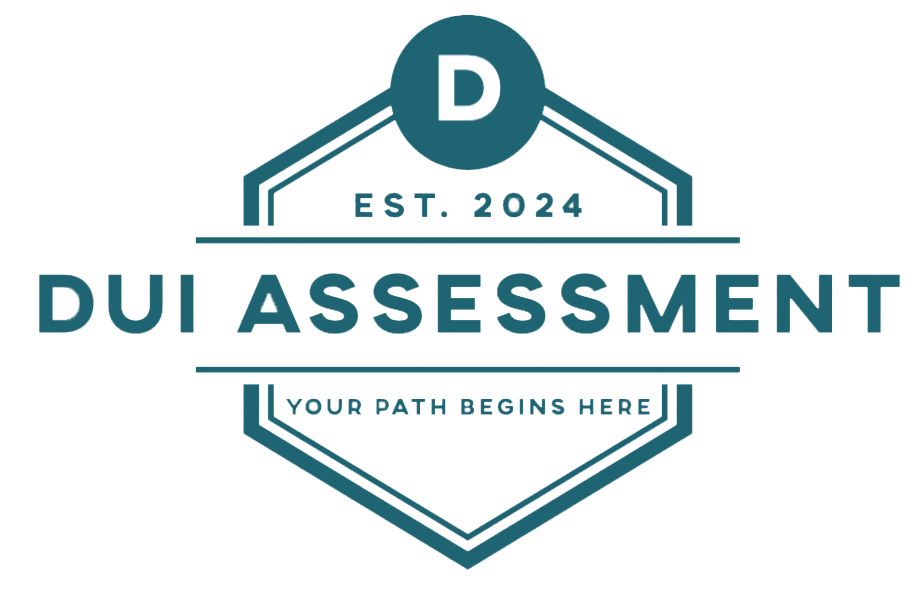If you or a loved one is facing a DUI charge, one of the steps that will likely follow is a DUI assessment. At our expert DUI Assessment and Evaluation Center, we understand how overwhelming and confusing this process can be, but we’re here to guide you through it every step of the way. Our primary goal is to help individuals get their life back on track and ensure that they understand exactly what to expect when going through a DUI assessment. In this post, we’ll walk you through what happens during DUI assessments and how you can prepare for them, ensuring that you’re fully equipped for success in navigating this critical stage.
What is a DUI Assessment?
Before delving into what happens during DUI assessments, it’s important to understand what a DUI assessment is. A DUI assessment is an evaluation conducted by a licensed professional to determine the level of alcohol or substance use, and whether or not there is an underlying substance use disorder. In the case of a DUI (Driving Under the Influence) offense, courts typically require offenders to undergo a DUI assessment as part of the legal proceedings. The results of this assessment will play a crucial role in determining whether the person needs to complete treatment, counseling, or attend educational programs.
The DUI assessment is not a punishment but rather a step toward rehabilitation, where professionals aim to assess the severity of alcohol or drug dependency and guide individuals toward the best path for recovery. Knowing what happens during DUI assessments can help alleviate some of the anxiety that comes with the unknown and prepare individuals to meet the challenge head-on.
- Why You Need a DUI Assessment:
A DUI assessment is a critical step in the legal process for those facing a DUI charge. It not only provides important information to the court but also serves as an opportunity for individuals to address any underlying substance use issues and get on the path towards recovery. A DUI assessment is necessary because it helps determine the level of alcohol or drug dependence, which can impact the recommended course of action for rehabilitation. This evaluation allows professionals to make informed decisions about the appropriate treatment plan and level of care needed for each individual.
Furthermore, completing a DUI assessment shows the court that you are taking your charge seriously and are willing to take responsibility for your actions. It demonstrates a willingness to seek help and work towards preventing future occurrences. This can also potentially lead to a reduction in penalties or sentencing for the DUI offense.
Moreover, a DUI assessment can also benefit individuals beyond the legal aspect. It provides an opportunity for self-reflection and understanding of one’s relationship with alcohol or drugs. It can help identify triggers and develop coping mechanisms to avoid relapse in the future. Overall, a DUI assessment is a crucial step towards addressing substance use issues and promoting positive change in one’s life.
- What Happens During a DUI Assessment:
During a DUI assessment, you will meet with a licensed professional who specializes in substance abuse evaluations. They will conduct an interview with you to gather information about your background, alcohol and drug use history, and any past treatment or counseling. You will also be asked to complete written assessments, such as questionnaires and surveys.
The licensed professional will evaluate the severity of alcohol or substance use based on established criteria and guidelines. They may also conduct drug testing to determine if there are any substances in your system at the time of the assessment. The length of the assessment can vary depending on individual circumstances, but it typically takes a few hours to complete.
After all the information is gathered, the professional will provide recommendations for treatment or education programs based on their evaluation. These recommendations may include attending educational classes, individual counseling sessions, outpatient treatment programs, or residential rehabilitation programs.
- Preparing for a DUI Assessment:
To ensure the most accurate and beneficial results from your DUI assessment, it’s important to come prepared. This includes providing any necessary documentation or court paperwork related to your DUI charge, as well as being honest and open during the interview process.
Additionally, it can be helpful to reflect on your alcohol and drug use history beforehand. Be prepared to discuss any past incidents or patterns of use, as well as any previous treatment or counseling experiences. It may also be beneficial to have a support system in place for emotional support before and after the assessment.
The DUI Assessment Process
Step 1: Initial Contact and Scheduling
The first step in the DUI assessment process is scheduling an appointment with a licensed evaluation center. At our expert DUI Assessment and Evaluation Center, we offer convenient scheduling options to ensure that you can attend your assessment without unnecessary stress or delay. During this initial contact, you’ll be asked for some basic personal information and to provide details about the DUI offense.
Once your appointment is scheduled, it’s essential to arrive on time and bring any requested documents. This could include your driver’s license, arrest records, or court documents. If you’re unsure what documents you need to bring, don’t hesitate to call our office and ask – we’re here to guide you through the entire process.
Step 2: Intake and Paperwork
When you arrive for your DUI assessment, you’ll be greeted by a staff member who will guide you through the intake process. This involves filling out various forms that collect your personal information, including details about your criminal history, prior substance use, and general health.
The intake paperwork will include questions that assess your drinking and driving history, including any previous DUI arrests. This information is important for the evaluation team to gain a comprehensive understanding of your situation. Don’t worry if you’re nervous or uncertain about answering some of the questions – the professionals conducting the assessment are non-judgmental and aim to gather honest information to guide you through the process. Remember, they are here to help.
Step 3: One-on-One Evaluation
What happens during DUI assessments next is a one-on-one evaluation with a licensed professional, such as a counselor or therapist. This part of the process is the core of the assessment, where the evaluator will conduct a thorough interview to gather more information about your alcohol or drug use, mental health, and general well-being.
Expect to discuss several topics, including:
- Substance Use History: The evaluator will ask questions about your drinking habits, drug use, and any past treatment or counseling you may have undergone.
- Family and Social History: You may also be asked about your family life, relationships, and social influences. This helps the evaluator understand if any external factors are contributing to your behavior.
- Mental Health and Well-being: Assessing your emotional and psychological state is also crucial. The evaluator will inquire about your mental health history and any previous diagnoses or treatments.
- Driving Behavior: You will likely be asked about the circumstances surrounding your DUI offense, including how much alcohol or substances were involved, your level of impairment, and any other contributing factors.
Throughout the evaluation, it’s important to be honest and open about your situation. The more accurate and complete your answers are, the better your chances of receiving a fair and accurate assessment. At our DUI Assessment and Evaluation Center, we strive to create a comfortable and supportive environment where individuals feel confident in sharing their experiences.
Step 4: Risk Assessment and Diagnosis
After gathering all necessary information, the evaluator will assess the level of risk you present regarding alcohol or drug use. The evaluator will use standardized diagnostic tools to assess the severity of your condition. This may include assessments like the Alcohol Use Disorders Identification Test (AUDIT) or the Substance Abuse Subtle Screening Inventory (SASSI).
Based on the findings, the evaluator may diagnose you with one of the following conditions:
- No Substance Use Disorder: If the evaluator finds that your alcohol or drug use does not reach the level of addiction or dependence, you may not need further treatment or counseling.
- Mild or Moderate Substance Use Disorder: If your substance use is causing harm but does not meet the criteria for a severe addiction, you may be required to attend an education program or outpatient treatment.
- Severe Substance Use Disorder: If the evaluator determines that your alcohol or drug use is problematic and meets the criteria for addiction, you may be referred to an inpatient rehabilitation program or long-term counseling.
Step 5: Developing a Treatment Plan
What happens during DUI assessments doesn’t stop at the evaluation itself. Once the assessment is complete, the evaluator will work with you to develop a treatment plan tailored to your needs. This plan will outline any required interventions, such as alcohol education classes, outpatient counseling, or inpatient rehabilitation. The treatment plan may also include recommendations for further mental health counseling if necessary.
Your treatment plan will be customized to ensure that it addresses your unique needs and sets you up for success. Whether you need a few sessions of counseling or a more intensive program, the goal of the treatment plan is to help you reduce the risk of future DUIs and improve your overall well-being.
Step 6: Documentation and Reporting
Once your assessment is complete, the results will be documented in a formal report. This report will be submitted to the court as part of your case. The report will detail the evaluator’s findings, including whether or not you have a substance use disorder, any treatment recommendations, and any additional suggestions for rehabilitation or recovery.
The court will use this report to determine what, if any, consequences you will face for the DUI offense. In many cases, successfully completing a recommended treatment plan can result in a reduced sentence or the ability to avoid more severe penalties.
How to Prepare for a DUI Assessment
While the DUI assessment itself is straightforward, there are a few things you can do to prepare. Here are some tips for making the process smoother:
- Be Honest: The assessment is not a test – it’s an opportunity for you to receive the help you need. Be open and truthful about your alcohol or drug use.
- Bring the Necessary Documents: Make sure to bring any paperwork requested by the DUI assessment center. This may include your driver’s license, court documents, or arrest records.
- Take Your Time: DUI assessments are an important part of the process, so don’t rush through the evaluation. Give yourself time to reflect on your experiences and answer the questions thoughtfully.
- Stay Calm: It’s normal to feel nervous, but remember that the goal of the assessment is to help you. The professionals conducting the evaluation are there to support you, not to judge you.
Getting Your Life Back on Track
A DUI assessment is a critical step in addressing a DUI offense and getting your life back on track. By understanding what happens during DUI assessments, you can approach the process with confidence and clarity. At our expert DUI Assessment and Evaluation Center, we are committed to guiding you through the entire process and offering the support and resources needed for recovery.
If you or a loved one is facing a DUI charge, don’t hesitate to reach out. Our team of experienced professionals is here for you every step of the way, ensuring that you receive the support, treatment, and care necessary for moving forward with your life.
We believe that everyone deserves a second chance, and with the right guidance and resources, you can take control of your future. Give us a call at 888-896-7893 or visit our website at www.duiassessment.com to learn more about how we can help you.



